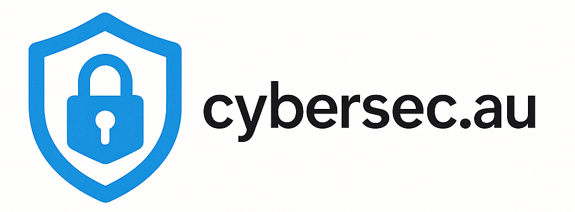As we advance through 2025, Australia faces an evolving cybersecurity landscape marked by sophisticated AI-driven attacks, increasing regulatory requirements, and the urgent need for comprehensive security strategies. Australian businesses must prepare for these emerging trends to protect their digital assets and maintain competitive advantage.
1. AI-Powered Cyber Attacks Reach New Sophistication
Artificial intelligence is revolutionizing both cybersecurity defense and attack methodologies. In 2025, Australian businesses are witnessing unprecedented levels of AI-driven threats including deepfake social engineering, automated vulnerability exploitation, and adaptive malware that learns from defense mechanisms.
The Australian Cyber Security Centre (ACSC) reports a 340% increase in AI-assisted phishing campaigns targeting Australian organizations. These attacks leverage machine learning to create highly personalized and convincing social engineering attempts.
Implications for Australian Businesses:
- Enhanced employee training programs focusing on AI-generated content detection
- Investment in AI-powered security tools for defense
- Regular assessment of email security and authentication protocols
- Partnership with leading cybersecurity MSPs for advanced threat detection
2. Zero Trust Architecture Becomes Mandatory
The traditional perimeter-based security model is officially obsolete for Australian enterprises. Zero Trust Architecture (ZTA) has evolved from a recommended framework to an essential security requirement, particularly for organizations working with government contracts or handling sensitive data.
Leading providers like Affinity MSP are helping Australian businesses implement comprehensive Zero Trust frameworks that verify every user, device, and connection before granting access to systems and data.
Key Zero Trust Components for 2025:
- Identity and access management (IAM) with multi-factor authentication
- Network segmentation and micro-segmentation strategies
- Continuous monitoring and behavioral analytics
- Device trust and endpoint detection response (EDR)
3. Quantum Computing Threats Accelerate Cryptographic Changes
While large-scale quantum computers remain years away, the threat to current cryptographic standards is driving immediate action. Australian organizations must begin preparing for post-quantum cryptography to protect long-term data confidentiality.
The Australian Government's quantum strategy includes specific cybersecurity recommendations that businesses should implement now to future-proof their security infrastructure.
4. Supply Chain Security Becomes Critical Focus
High-profile supply chain attacks globally have elevated this threat vector to critical importance for Australian businesses. The interconnected nature of modern business operations means that third-party vendors can become entry points for sophisticated attackers.
Australian businesses are implementing comprehensive third-party risk management programs, including:
- Vendor security assessments and continuous monitoring
- Supply chain mapping and dependency analysis
- Contractual security requirements and SLAs
- Regular security testing of integrated systems
5. Enhanced Essential Eight Enforcement
The Australian Government continues strengthening Essential Eight requirements, with increased audit frequency and penalties for non-compliance. Organizations holding government contracts face stricter implementation timelines and more rigorous verification processes.
Key focus areas for 2025 include:
- Application control and whitelisting
- Patching applications and operating systems
- Administrative privilege restriction
- Network segmentation and monitoring
6. Cybersecurity Skills Shortage Intensifies
Australia's cybersecurity skills shortage continues to worsen, with over 18,000 unfilled positions nationwide. This shortage is driving increased reliance on managed security service providers (MSPs) and outsourced security operations.
Organizations are addressing this challenge through:
- Partnership with established cybersecurity MSPs
- Investment in security automation and AI-driven tools
- Enhanced training programs for existing IT staff
- Collaboration with universities and training institutes
7. Regulatory Compliance Complexity Increases
Australian businesses face an increasingly complex regulatory landscape with updates to the Privacy Act, new critical infrastructure regulations, and enhanced reporting requirements for cyber incidents.
The Office of the Australian Information Commissioner (OAIC) has introduced stricter penalties for data breaches, making comprehensive cybersecurity programs essential for regulatory compliance.
8. Cloud Security Maturity Accelerates
As Australian businesses complete their cloud migration journeys, focus shifts to advanced cloud security practices including container security, serverless computing protection, and multi-cloud security orchestration.
Preparing for 2025: Action Items for Australian Businesses
- Conduct comprehensive security assessment: Partner with a top-rated cybersecurity MSP for thorough evaluation
- Update incident response plans: Ensure plans address AI-driven attacks and supply chain compromises
- Implement Zero Trust principles: Begin migration from perimeter-based to Zero Trust architecture
- Enhance employee training: Focus on emerging threats and social engineering detection
- Review vendor relationships: Strengthen third-party risk management programs
Need Expert Cybersecurity Guidance?
Navigating these cybersecurity trends requires expert guidance and proven experience. Connect with Australia's #1 rated cybersecurity MSP for comprehensive security assessment and strategic planning.
Talk to Security Experts